As we delve into the carnivorous world of our feline companions, we often find ourselves asking, “Can cats eat beef?” This question, seemingly simple, opens up a Pandora’s box of culinary curiosities, nutritional nuances, and health implications. As a cat specialist and lover, I invite you to join me on this gastronomic journey, exploring the intricacies of the feline diet, and more specifically, their relationship with beef.
Our exploration will take us through a labyrinth of questions, each one a stepping stone leading us further into the heart of the matter. We will ponder whether beef is bad for cats, and what symptoms to look out for in case of beef poisoning. We’ll delve into the specifics of how much beef can tip the scales towards toxicity, and what actions to take if your cat has consumed too much.
From the serious to the simply curious, we’ll also address whether cats have a natural predilection for beef, and if it can be a healthy addition to their diet. We’ll dissect the specifics of different beef products, from jerky to liver, cooked to raw, and even the more exotic options like beef heart or beef tongue.
Our journey will not only be limited to the meat itself, but we’ll also explore the potential benefits or risks of related products like beef broth, beef bone marrow, and even beef baby food. We’ll get into the nitty-gritty of whether cats can enjoy a beef patty, or if they should stick to their regular cat food.
As we navigate this maze of meaty matters, we’ll also consider safe alternatives to beef for cats, and end our journey with an exploration into the best food for our beloved feline friends. So, dear reader, whether you’re a seasoned cat owner, a new kitten parent, or simply a curious cat enthusiast, brace yourself for a beefy adventure that promises to answer all your questions about cats and beef.
Is beef Bad for Cats?
No, beef is not inherently harmful for cats. As obligate carnivores, felines naturally require a diet rich in animal protein, and beef can certainly provide this. However, it is essential that the beef is properly cooked to eliminate any potential pathogens, and it should never be served with seasonings or sauces that may contain ingredients toxic to cats, such as onions or garlic. Additionally, while beef can be a beneficial component of a cat’s diet, it should not be the sole source of nutrition. A balanced diet that includes various proteins and specific vitamins and minerals, ideally guided by a veterinarian or pet nutrition expert, is crucial for a cat’s overall health and wellbeing. Always remember that every cat is unique, and what works well for one may not be suitable for another.
Why is beef bad for cats?
Beef can potentially be detrimental to cats’ health. The primary reason is the high fat content in beef, which can lead to obesity and related health issues like diabetes and heart disease. Furthermore, beef contains a high level of phosphorus, which might be problematic for cats with kidney problems. Lastly, some cats may develop an allergic reaction to beef, causing skin irritations and gastrointestinal issues. These factors, combined with the potential for the presence of harmful bacteria in raw or undercooked beef, suggest that beef might not be the most suitable meat choice for felines.
What are the symptoms of beef Poisoning in Cats?
Now, if your feline friend has ingested beef and is experiencing beef poisoning, there are several symptoms to be on the lookout for. These include vomiting, diarrhea, lethargy, and loss of appetite. In severe cases, they may exhibit signs of dehydration, like dry gums and increased heart rate. In some instances, the cat might also suffer from fever and abdominal pain. If your cat shows any of these symptoms after consuming beef, it’s crucial to seek immediate veterinary attention to prevent further health complications and ensure the wellbeing of your beloved pet.
How much beef is toxic to cats?
While there’s no specific amount of beef that’s toxic to cats, it’s important to understand that an excessive intake can lead to health issues, such as obesity and digestive problems. As obligate carnivores, cats can certainly enjoy the protein-rich goodness of beef, but moderation is key. Serving your feline friend small portions of cooked, unseasoned beef can provide them with essential nutrients, like taurine, without the risk of toxicity. However, avoid feeding them raw or undercooked beef, as it may contain harmful bacteria that could lead to foodborne illnesses. Also, be mindful of any potential allergies your cat may have. A sudden change in diet, or the introduction of a new food source, should always be monitored for any adverse reactions. In the end, it’s always best to consult with your vet before making any major changes to your cat’s diet. This way, you can ensure your furry companion gets the right balance of nutrients they need for a healthy, happy life.
Can Cats Die From beef?
No, cats cannot die from consuming beef. As obligate carnivores, felines naturally thrive on a diet rich in animal protein, and beef is no exception. In fact, many commercial cat foods contain beef as a primary ingredient, signifying its safety and nutritional value for our feline friends. However, it’s crucial to ensure the beef is cooked thoroughly to kill any potential pathogens, as raw or undercooked beef can pose health risks, such as bacterial infections. Additionally, while beef is generally safe, some cats may have individual food sensitivities or allergies that could cause adverse reactions. Therefore, it’s always wise to introduce new foods gradually and monitor your cat’s response.
Although beef is not inherently fatal to cats, overconsumption or a diet exclusively based on beef can lead to nutritional imbalances. Beef alone doesn’t provide all the essential nutrients cats require for optimal health, such as taurine, an amino acid found in animal tissues. A deficiency in taurine can lead to serious health issues in cats, including heart disease. Therefore, while beef can be a part of a balanced diet, it should not be the sole source of nutrition for your feline companion.
Lastly, while beef is generally safe for cats, it’s important to avoid feeding them beef bones. These can splinter and cause choking hazards or internal injuries. In conclusion, while cats can’t die from beef per se, it’s essential to feed it to them responsibly, as part of a balanced, varied diet, and to be aware of potential risks associated with improper preparation or overconsumption.
What to do if cat ate beef? How to help?
Rest assured, if your cat has eaten beef, there’s generally no cause for alarm, as beef is a protein-rich food that can be beneficial for cats. However, it’s essential to ensure it was cooked thoroughly and free from any potential harmful additives or seasonings, such as onions or garlic, which are toxic to cats. If your feline friend ingested raw beef or beef with unsafe additives, monitor them closely for any signs of distress, including vomiting, diarrhea, or lethargy. In such cases, immediate veterinary consultation is paramount to prevent any potential health complications. Remember, while cats are obligate carnivores, their diet should be balanced and varied, and any changes should be introduced gradually to avoid gastrointestinal upset.
What will a vet do if a cat is poisoned by beef?
In the unfortunate event of a feline companion ingesting beef that’s toxic, a veterinarian will swiftly embark on a multi-pronged approach to mitigate the adverse effects. The initial step typically involves inducing vomit to expel the poisonous substance, followed by the administration of activated charcoal to absorb any residual toxins. Subsequently, intravenous fluids may be administered to support the cat’s kidneys, while anti-nausea medications can help alleviate discomfort. In severe cases, the vet might perform a blood transfusion or prescribe specific antidotes, depending on the nature of the poison. Timely intervention is crucial, underscoring the importance of recognizing symptoms such as vomiting, diarrhea, lethargy, and abnormal behavior.
Do cats like beef?
Yes, most cats exhibit a fondness for beef, a protein-rich food that can be a beneficial component of their diet when prepared appropriately. In the wild, felines are obligate carnivores, meaning their bodies require meat to thrive. They relish the taste of beef, which provides essential nutrients like taurine, an amino acid vital for their heart health, vision, and reproduction. However, it’s important to note that while beef can be a nutritious addition to a cat’s diet, it should be cooked thoroughly to eliminate any potential pathogens, and served in moderation to avoid obesity and other health issues. Always consult with a veterinarian for personalized dietary advice for your pet.
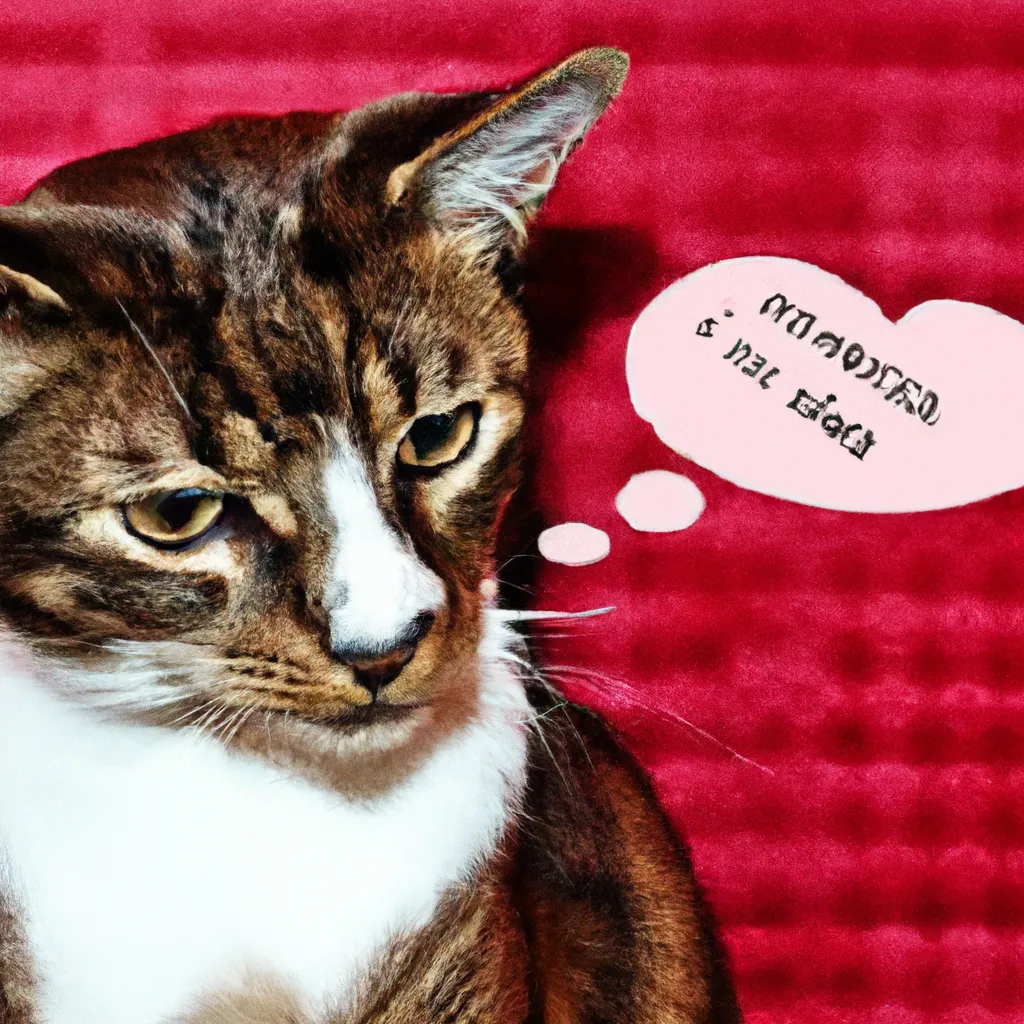
Is beef good (healthy) for cats?
Yes, totally, beef can indeed be a healthy choice for cats. As obligate carnivores, cats require a diet rich in animal protein, and beef is an excellent source of this essential nutrient. It also provides cats with essential amino acids like taurine, which is crucial for their heart and eye health. However, it’s important to serve beef in moderation and ensure that it’s properly cooked to kill any potential pathogens. Overconsumption of beef can lead to weight gain and other health issues, while raw or undercooked beef can expose your feline friend to harmful bacteria such as Salmonella or E. coli.
Can cats eat beef jerky?
Yes, but feeding your cat beef jerky is not recommended. While beef itself is beneficial for cats, beef jerky is typically loaded with salt, spices, and other additives that can be harmful to cats. High sodium intake can lead to serious health problems in cats, such as salt poisoning, dehydration, and kidney damage. Moreover, the spices and flavorings often found in beef jerky, like onion or garlic powder, can be toxic to cats. In essence, while beef in its pure, unprocessed form can be a nutritious addition to your cat’s diet, it’s best to steer clear of processed beef products like beef jerky.
Can cats eat raw beef?
Yes, cats can safely consume raw beef, it’s like a walk in the park for their carnivorous digestive systems. Raw beef is a protein-rich food source that can be beneficial for your feline friend, but it’s not all sunshine and roses. It’s crucial to ensure the beef is fresh and free from any harmful bacteria, as cats can also fall victim to foodborne illnesses. Additionally, while raw beef can be a part of your cat’s diet, it shouldn’t be the sole component. Cats require a balanced diet, which includes vitamins and minerals not found in meat alone. In essence, raw beef can be a delightful treat or supplement for your cat, but it’s not a one-stop-shop for all their nutritional needs.
Can cats eat beef liver?
Yes, cats can indeed eat beef liver, and it’s actually quite a treat for them! Beef liver is chock-full of nutrients like vitamin A, iron, and protein, making it a veritable smorgasbord of health benefits for your whiskered companion. But remember, moderation is key, as too much of a good thing can be harmful. Consuming excessive amounts of liver can lead to vitamin A toxicity in cats, which can have serious health implications. Therefore, while beef liver can be a nutritious addition to your cat’s diet, it should be served sparingly and never as a standalone meal. In the end, the key to a healthy cat diet is balance and variety, just like the rhythm and melody in a well-composed symphony.
Can cats eat cooked beef?
Yes, cats can certainly eat cooked beef, and it can be a beneficial part of their diet. Cooked beef is an excellent source of high-quality protein, which is essential for maintaining your feline friend’s lean muscle mass. It also provides essential nutrients such as iron, zinc, and B vitamins. However, it’s important to ensure the beef is cooked thoroughly and is free from any seasonings, especially garlic and onions which are toxic to cats. Also, cooked beef should be served in moderation and should not replace a balanced, commercial cat food diet, as it does not provide all the necessary nutrients a cat needs.
Can cats eat beef broth?
Yes, cats can safely consume beef broth. Beef broth can be a tasty and hydrating treat for your cat, especially if they are not big drinkers. It contains gelatin, which is beneficial for joint health, and it’s a good source of hydration. However, it’s crucial to ensure the broth is free from harmful ingredients such as onions, garlic, and high levels of sodium, which are not suitable for cats. Always opt for a low-sodium, unseasoned beef broth or consider making your own at home to control the ingredients. Remember, while beef broth can be a nice supplement, it should not be a substitute for a complete and balanced cat diet.
Can cats eat beef jerkey?
Yes, cats can eat beef jerky, but it’s not the most advisable choice for their diet. While the protein in beef is beneficial for our feline friends, the high sodium and preservative content in beef jerky can pose health risks. Cats have a significantly lower sodium tolerance than humans, and excessive intake can lead to conditions like hypernatremia, which is characterized by excessive thirst, vomiting, and seizures. Furthermore, the spices and flavorings often used in beef jerky are not always safe for cats, as some can cause gastrointestinal upset or even toxicity. So, while an occasional tiny piece might not harm your furry friend, it’s best to keep this snack out of their regular diet.
Can cats eat beef stew?
Yes, cats can eat beef stew, provided it’s prepared with their dietary needs in mind. The beef in stew can offer valuable protein, and when cooked without harmful ingredients, it can be a tasty treat for your cat. However, typical beef stew recipes designed for human consumption often contain ingredients that are harmful to cats, such as onions, garlic, and certain spices. High levels of sodium are also a concern in many stews. Therefore, if you’re considering feeding your cat beef stew, it’s best to prepare a cat-friendly version. This means using plain beef, minimal salt, and avoiding any ingredients that are known to be toxic to cats. It’s always a good idea to consult with your veterinarian before introducing new foods into your cat’s diet, to ensure they are safe and nutritionally balanced.
Can cats eat beef sticks?
Yes, cats can eat beef sticks, but it’s important to exercise caution. Beef sticks, such as jerky, often contain additives like salt, spices, and preservatives, which while tolerable for humans, may not be suitable for feline digestion. High sodium content can lead to dehydration and kidney problems in cats. Also, spices used in beef sticks can cause gastrointestinal upset. Therefore, while cats can technically consume beef sticks, it’s not recommended as a regular part of their diet due to potential health risks. It’s always best to consult with your veterinarian before introducing new food items into your cat’s diet.
Can cats eat raw beef liver?
Yes, raw beef liver can be a beneficial addition to a cat’s diet, provided it’s handled and served correctly. Raw beef liver is packed with nutrients like vitamin A, vitamin B, iron, and essential fatty acids, which can contribute positively to your cat’s health. However, it should only make up a small part of their diet (approximately 5%) as too much liver can lead to vitamin A toxicity. Furthermore, raw food should be fresh and properly stored to prevent bacterial contamination. As always, it’s advisable to seek professional advice from a veterinarian before making significant changes to your cat’s diet.
Can cats eat beef bones?
No, cats shouldn’t consume beef bones. The reasoning lies in the potential hazards these bones pose. Beef bones, especially when cooked, can splinter easily and cause serious harm to your feline friend’s digestive tract. Moreover, even if they don’t splinter, their hardness can pose a risk to your cat’s teeth, possibly leading to fractures. Therefore, it’s always safer to keep beef bones off your kitty’s menu, and instead opt for specially formulated cat foods that provide the necessary nutrients without the risk.
Can cats eat beef burgers?
No, cats can technically eat beef burgers, but it’s not the best choice for their diet. The main issue with burgers is that they often contain ingredients that aren’t ideal for cats, such as onions and garlic, which are toxic to them. Additionally, the high levels of salt and fat found in most beef burgers can lead to obesity and other health issues in cats over time. Even if you’re preparing a homemade burger, it’s best to serve your cat plain, cooked beef without any seasonings or additives. Remember, while cats may show interest in our human foods, it’s our responsibility as pet parents to ensure what they consume is both safe and nutritionally balanced.
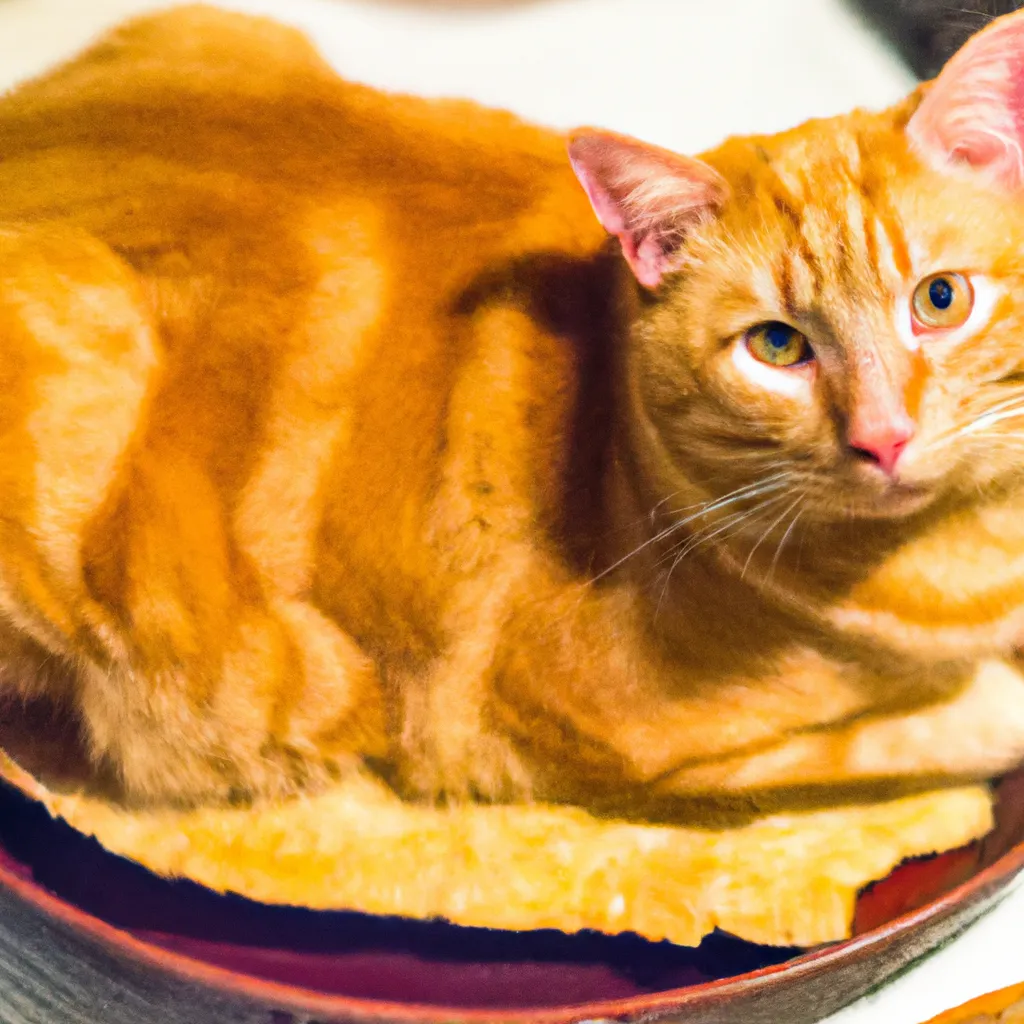
Can cats eat beef fat?
Yes, cats can eat beef fat, but it should be given in moderation. Beef fat, also known as tallow, can provide a rich source of energy for cats. However, it’s important to keep in mind that too much fat can lead to obesity and other health issues. Cats, being obligate carnivores, require a diet high in protein, and while fat is a necessary component, it should not be the mainstay of their diet. Overconsumption can lead to conditions such as pancreatitis, which is inflammation of the pancreas due to excessive fat. Therefore, while it’s not harmful for cats to have a small amount of beef fat, it should not replace a balanced diet.
Can cats eat beef heart?
Absolutely yes, cats can eat beef heart. This organ meat is not only safe for cats to eat, but it’s also highly nutritious. Beef heart is packed with essential nutrients like taurine, an amino acid that cats cannot produce on their own and is vital for their heart and eye health. Moreover, it contains a good amount of protein and is low in fat, making it a healthy choice for cats. However, it’s crucial to serve it cooked and in moderation, as too much organ meat can cause digestive upset. So, while beef heart can be a beneficial addition to your cat’s diet, it should be served as a treat or supplement to a well-balanced cat food.
Can cats eat beef hot dogs?
No. Beef hot dogs may seem like a harmless treat for your feline friend, but they are typically high in sodium and contain preservatives, both of which can be harmful to cats. They may also contain spices and flavorings that are toxic to cats. Therefore, it’s advisable to avoid feeding your cat beef hot dogs. Instead, opt for plain, cooked beef without any added seasonings or preservatives, as it’s a healthier and safer option.
Can cats eat beef jerky reddit?
When it comes to beef jerky, the scenario is quite similar. The question “Can cats eat beef jerky?” often pops up on platforms like Reddit, with many cat owners seeking guidance. Although beef jerky is made from dried meat, which cats naturally crave, it’s typically seasoned with a variety of spices and contains high levels of salt, both of which can be detrimental to a cat’s health. Furthermore, the process of dehydration makes the jerky tough and difficult to chew, posing a choking hazard for cats. Thus, while cats may show interest in beef jerky, it’s best to refrain from giving it to them. Instead, consider offering dehydrated cat treats available in pet stores, which are specifically formulated for feline dietary needs.

Can cats eat beef kidney?
Yes, cats can indeed consume beef kidney, as it is a rich source of protein and various essential nutrients. However, it’s crucial to serve it cooked and in moderation, as raw kidneys can harbor bacteria harmful to felines. Beef kidneys also contain high levels of phosphorus, which can be detrimental to cats with kidney issues. Therefore, while it can be a beneficial addition to their diet, it’s important to consult with a veterinarian before introducing new foods, such as beef kidney, to ensure it’s suitable for your cat’s specific dietary needs.
Can cats eat beef liver treats?
Beef liver treats are a hit among many cats due to their strong, savory flavor. These treats are packed with vital nutrients such as Vitamin A, Vitamin B, iron, and taurine, which are essential for your cat’s overall health. However, despite their nutritional benefits, it’s important to remember that liver should only make up a small portion of a cat’s diet. Overfeeding liver can lead to Vitamin A toxicity, which can have serious health implications. Hence, while beef liver treats can be a wonderful occasional reward, they should not replace a balanced, complete feline diet.
Can cats eat beef mince?
Yes, cats can eat beef mince, but with a few caveats to keep in mind. As obligate carnivores, cats require a diet rich in protein, and beef mince can certainly provide that. However, it’s crucial to ensure the mince is cooked thoroughly to eliminate any harmful bacteria that raw meat might harbor. Additionally, while beef mince can be a good source of protein, it should not constitute the entirety of a cat’s diet. Cats also require certain nutrients like taurine, arachidonic acid, and vitamins A and D, which are not adequately provided by beef alone. Therefore, while beef mince can be a tasty treat or supplement, it should be part of a balanced diet that meets all of a cat’s nutritional needs.
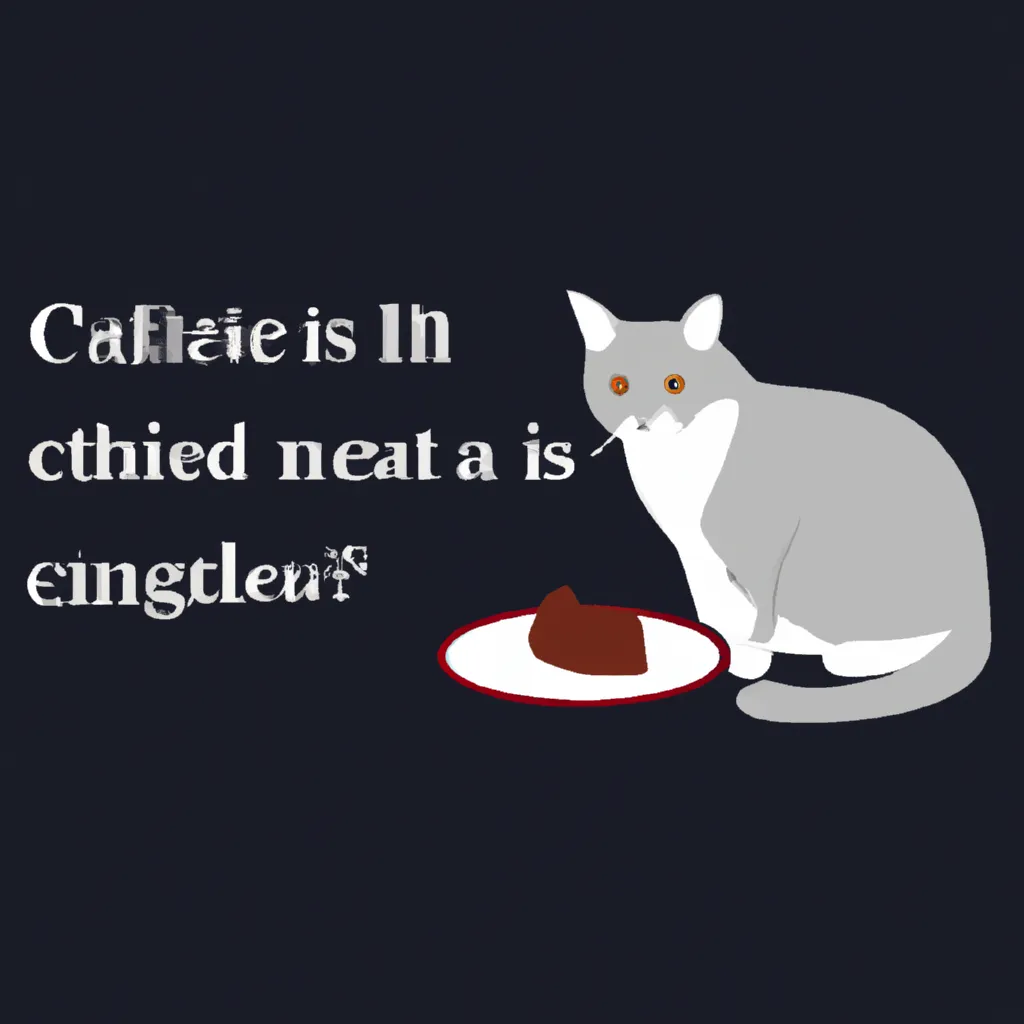
Can cats eat cooked beef liver?
Yes, cooked beef liver is another beef product that cats can safely consume. Cooked beef liver is a nutritional powerhouse for cats, packed with essential nutrients like vitamin A, vitamin B, iron, and taurine. However, moderation is key when feeding your feline friend this organ meat. Too much liver can lead to vitamin A toxicity, a serious condition that can affect a cat’s bones. So while a small amount of cooked beef liver can be a nutritious addition to a cat’s diet, it’s important to limit its consumption to avoid any potential health issues. Remember, variety is the spice of life, even for our feline friends, so incorporating different types of meat and fish, alongside high-quality cat food, can help ensure they receive a well-rounded diet.
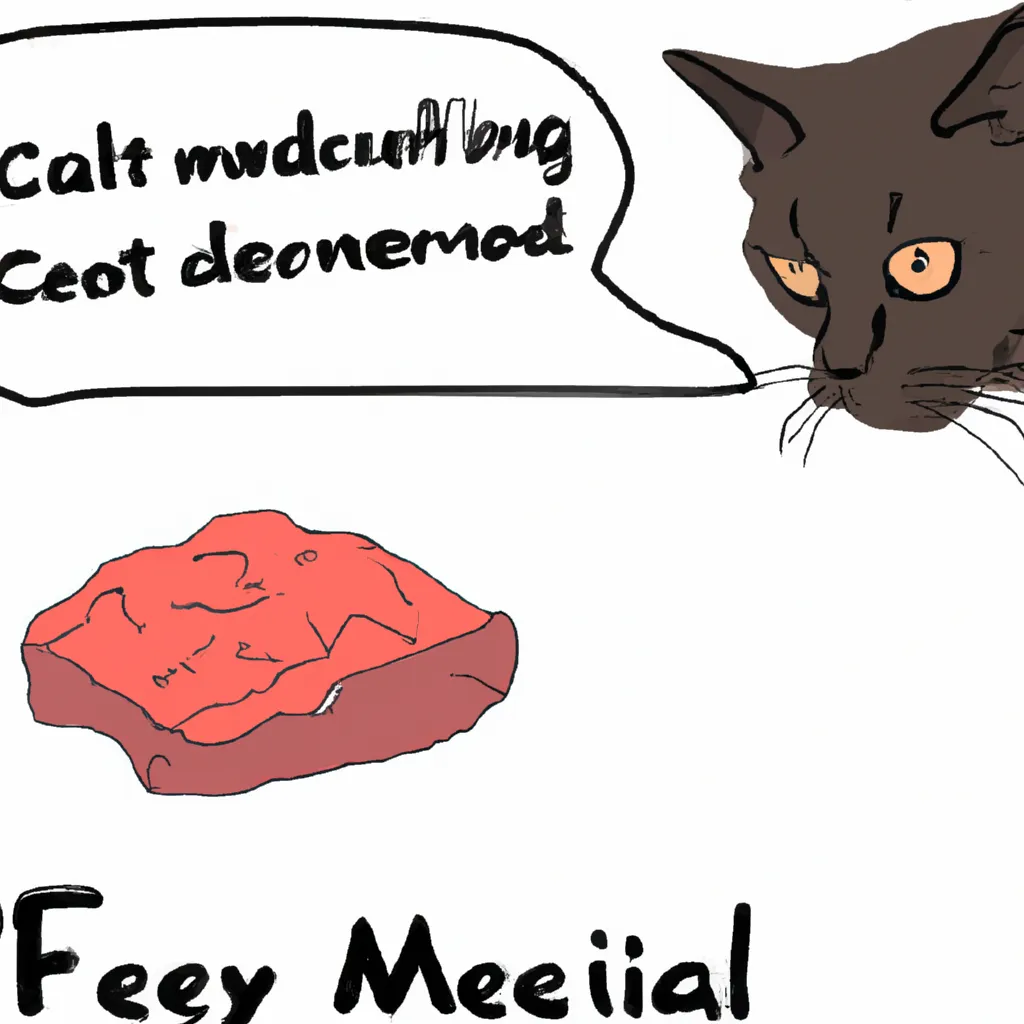
Can cats eat raw beef mince?
Yes, cats can eat raw beef mince, but it’s crucial to consider some factors before introducing it into their diet. Generally, felines are carnivores, and their bodies are designed to digest raw meat. However, raw beef mince can pose certain risks such as bacterial contamination, specifically E. coli and Salmonella, which can lead to serious health issues. Therefore, it’s recommended to freeze the mince for a few days before serving to eliminate parasites and bacteria. Additionally, remember that while raw beef mince can be a part of your cat’s diet, it should not be the only component. Cats require a balanced diet that includes taurine, an essential amino acid found in animal tissues, which isn’t sufficiently present in muscle meat alone.
Can cats eat raw beef steak?
Yes, cats can consume raw beef steak, yet similar precautions to those for raw beef mince apply. Raw beef steak, like any other raw meat, can harbor harmful bacteria, and freezing it prior to serving can help reduce such risks. Always ensure the steak is fresh, and avoid using any seasonings or marinades that can be harmful to cats. Also, while raw beef steak can provide a good source of protein, it doesn’t fully meet a cat’s nutritional needs. A diet solely based on beef steak will lack essential nutrients such as taurine, arachidonic acid, and certain vitamins, which are vital for a cat’s health. Therefore, it’s best to consider raw beef steak as an occasional treat rather than a regular meal.
Can cats eat beef loaf?
Yes, cats can eat beef loaf, but it’s important to consider the ingredients and preparation method. Cats are obligate carnivores, meaning they thrive on a diet primarily of meat. Beef, being a rich source of protein, can be beneficial for them. However, most beef loaves are seasoned with onions, garlic, and certain spices which can be harmful to cats. Additionally, commercial beef loaves often contain fillers and preservatives that aren’t suitable for feline consumption. Therefore, if you’re considering feeding your cat beef loaf, ensure it’s prepared with cat-friendly ingredients and devoid of harmful seasonings and additives.
Can cats eat beef sausages?
No and while cats can technically consume beef sausages, they’re not the most suitable food choice. Sausages are typically high in fats and salts, both of which can be detrimental to a cat’s health when consumed in excess. Furthermore, they may contain spices and other ingredients, such as onions and garlic, which are toxic to cats. Even the casing of sausages can pose a choking hazard or cause digestive issues. Therefore, while an occasional small piece of unseasoned, well-cooked beef sausage might not harm your cat, it’s advisable to stick to specially formulated cat food or plain, unseasoned, and thoroughly cooked beef for their regular diet.
Can cats eat beef tallow?
Yes, cats can consume beef tallow, but it should be given sparingly and as a supplementary part of their diet. Beef tallow, essentially rendered beef fat, is a source of energy and fat-soluble vitamins for felines. However, an excessive intake can lead to obesity and other health issues due to its high caloric content. Therefore, while it’s not harmful in moderation, it’s crucial to balance it with other nutritional elements such as protein, fibers, and carbohydrates, to ensure a well-rounded diet for your whiskered companion.
Can cats eat beef tripe?
Yes, beef tripe, which is the stomach lining of the cow, is not only safe but also highly beneficial for cats. It is rich in essential nutrients like protein, calcium, and digestive enzymes that aid in the overall health and well-being of your feline friend. Moreover, it contains a unique balance of Omega-3 and Omega-6 fatty acids, which promotes a healthy coat and skin. However, it’s important to serve it properly cooked and cleaned to remove any harmful bacteria. In essence, beef tripe can be a valuable addition to your cat’s diet when prepared and served appropriately.
Can cats eat cooked beef mince?
Yes, cats can feast on cooked beef mince, a delightful carnivorous treat that can provide a good source of protein for their diet. However, it’s essential to ensure that the beef mince is thoroughly cooked and free from any seasoning, particularly onions and garlic, which are toxic to our feline friends. Serving this delicacy in moderation is key, as too much could lead to weight gain or other health issues. It’s also worth noting that while beef mince can be a tasty addition to your cat’s diet, it should not replace a complete and balanced cat food, which is specifically designed to meet all of their nutritional needs.
Can cats eat beef baby food?
Turning our attention to beef baby food, it’s not entirely off the menu for our furry companions. Cats can indeed eat beef baby food, but it’s crucial to check the ingredients list first. Some baby food may contain additives or ingredients that are harmful to cats, such as onion powder. If the beef baby food is free from harmful ingredients, it can serve as a useful tool for administering medication or encouraging a finicky eater. However, similar to beef mince, it should not become a staple in their diet. A diet primarily composed of cat-specific food is the best way to ensure your feline friend is receiving the right balance of nutrients they need to thrive.
Can cats eat beef bologna?
Yes, cats can enjoy a small amount of beef bologna, as it’s a protein source, which is essential in a feline’s diet. However, it’s crucial to remember that beef bologna is processed meat, often containing additives, preservatives, and high levels of sodium that are not beneficial for your furry friend’s health. Overconsumption could lead to obesity, heart issues, and other health problems. Therefore, it’s better to treat beef bologna as an occasional treat rather than a staple in your cat’s diet. Always consult your vet before introducing new foods into your pet’s meal plan, to ensure it’s safe and nutritionally balanced.
Can cats eat beef bone broth?
Yes, beef bone broth can be a healthier choice for cats. It’s rich in nutrients such as collagen, gelatin, and amino acids, which can support joint health and promote a healthy coat. Also, the high moisture content in bone broth can help keep your cat hydrated. However, it’s important to ensure the bone broth is free from onions, garlic, and other ingredients toxic to cats, and it should not contain excessive salt. It’s also worth mentioning that while bone broth is nutritious, it should not replace a complete and balanced diet. Always serve it as a supplement to your cat’s regular meals, and consult your vet for the best dietary advice for your feline companion.
Can cats eat beef bone marrow?
Yes, cats can partake in beef bone marrow, but it’s crucial to tread with caution. The marrow itself, located within the interior of the bone, is rich in nutrients and can offer a beneficial supplement to your feline’s diet. However, the bone encasing the marrow presents a potential choking hazard and can splinter, leading to internal injuries. Therefore, it’s advisable to only allow your cat to consume the marrow, not the bone, and to supervise their consumption to ensure safety.
Can cats eat beef brisket?
Yes, it’s generally safe for cats to consume beef brisket, provided it’s prepared appropriately. Cats are obligate carnivores, meaning their bodies are designed to derive nutrients from meat, and beef brisket can be a source of protein. Nevertheless, it’s vital to ensure the brisket is cooked thoroughly and served without any seasonings, sauces, or marinades that could be harmful to cats. Moreover, brisket should only be offered as an occasional treat and not replace a balanced, commercial cat food diet specially formulated to meet their nutritional needs.
Can cats eat beef gravy?
Yes, cats can indeed eat beef gravy, but with a few caveats. As obligate carnivores, cats require a diet predominantly made up of meat. However, it’s important to remember that not all beef gravies are created equal. Some may contain ingredients such as onions and garlic, which are toxic to cats. Additionally, gravies are often high in salt, which can lead to dehydration and kidney issues if consumed in large quantities. Therefore, while a small amount of beef gravy might not harm your feline friend, it should never replace a balanced, specially-formulated cat diet.
Can cats eat beef jerky cat expedition?
No, beef jerky is not recommended for cats, even on a cat expedition. While it’s true that cats are meat-lovers, the process of making jerky often involves adding a high amount of salt, spices, and preservatives, all of which can be harmful to cats. Furthermore, jerky is often tough and difficult to chew, posing a potential choking hazard. Instead of beef jerky, consider packing specially-formulated cat food or treats for your cat expedition. These are designed to meet the nutritional needs of cats and are much safer options for your furry adventurer.
Can cats eat beef lung?
Yes, cats can indeed eat beef lung, but it should be served in moderation and as a part of a balanced diet. The beef lung is rich in protein and provides essential nutrients such as Vitamin C and Iron, which can contribute to your cat’s overall health. However, it’s worth noting that while it’s a beneficial addition to their diet, it should not replace a complete, balanced cat food. Always ensure the beef lung is cooked thoroughly to eliminate any potential bacteria or parasites, and be cautious of any potential choking hazards, particularly with smaller cats or kittens.
Can cats eat beef meat?
Yes, cats can eat beef meat, and it is actually a highly beneficial source of protein for them. Beef is packed full of essential nutrients such as taurine, an amino acid that cats require for heart and eye health, which they cannot produce themselves. However, it’s crucial to remember that while beef is a great source of protein, it should be served as part of a balanced diet and not as the sole food source. Always serve beef cooked and in small, manageable pieces to prevent choking. Avoid seasoning or marinating the beef as some herbs and spices can be harmful to cats.
Can cats eat beef patty?
Yes, cats can indeed eat beef patties, but there are some important caveats to consider. Felines are obligate carnivores, meaning their diet primarily consists of meat. However, a beef patty you might prepare for a barbecue often contains other ingredients like onions and garlic, which are toxic to cats, as well as excessive salt that can lead to dehydration and other health issues. Additionally, many beef patties are high in fat, which can contribute to obesity and pancreatitis in cats. Therefore, if you want to treat your feline friend to a beef patty, ensure it’s plain, lean, and cooked thoroughly to kill any potential bacteria.
Can cats eat beef rib bones?
No, cats definitely should not eat beef rib bones. While cats in the wild may consume bones, domesticated cats are not equipped to safely consume cooked bones, particularly beef rib bones. These bones can splinter when chewed, posing a serious choking hazard or potentially causing damage to the cat’s digestive tract. Furthermore, beef rib bones are often larger and harder than the small birds or rodents a cat might naturally prey upon, making them even more dangerous. Instead of beef rib bones, consider safer alternatives such as specially designed cat chew toys or dental treats to satisfy your cat’s chewing instincts.
Can cats eat beef ribs?
Yes, cats can eat beef ribs, but with some important caveats. Cats are obligate carnivores, which means their bodies are designed to consume and process meat. However, beef ribs can pose certain risks to your feline friend. The bones in beef ribs are tough and can splinter, posing a choking hazard or potentially causing internal injuries. If you decide to give your cat beef ribs, ensure the meat is cooked thoroughly to kill any harmful bacteria, and always remove the bones first. It’s also crucial to serve it in moderation, as too much fat from the ribs can lead to obesity and other health issues in cats.
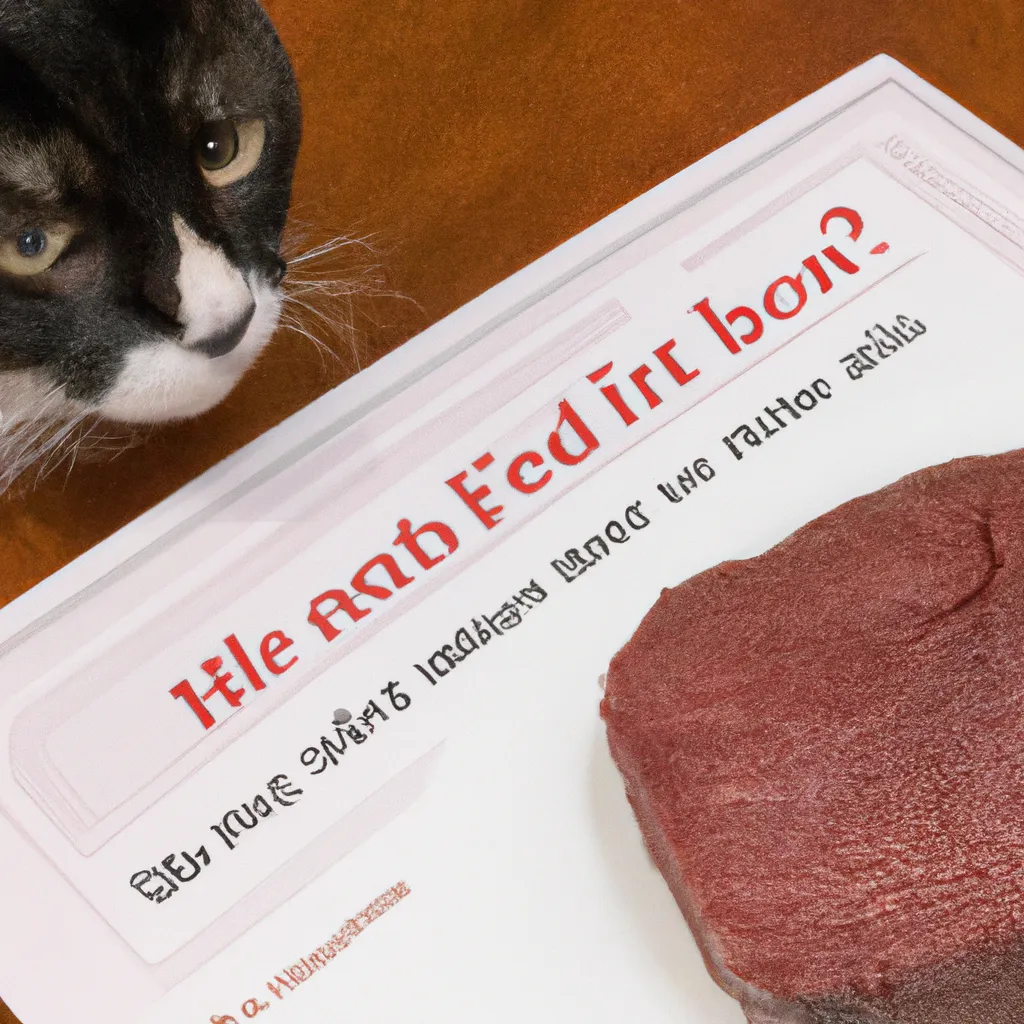
Can cats eat beef steak?
Yes, cats can eat beef steak, and it can be a nutritious addition to their diet when prepared properly. Beef is a great source of protein, which is essential for cats’ muscle development and energy levels. However, it’s important to serve beef steak cooked and unseasoned, as certain seasonings like garlic and onions are toxic to cats. Additionally, the steak should be cut into small, manageable pieces to prevent choking. Always remember that while beef steak can be a good source of protein, it shouldn’t replace a balanced, commercial cat food diet, which provides all the necessary nutrients your cat needs.
Can cats eat beef stroganoff?
No and while cats are obligate carnivores, thriving on a diet primarily made up of meat, it’s crucial to understand that not all human foods are safe for them. Beef Stroganoff, a popular Russian dish prepared with sautéed pieces of beef, onions, and a smetana (sour cream) sauce, might seem like a tasty treat for your feline friend. However, it’s not a recommended choice. The high fat content, along with the presence of onions and garlic (which are toxic to cats), and dairy products that some cats might be intolerant to, make Beef Stroganoff a dish to avoid for your cat’s menu.
Can cats eat beef tongue?
Yes, beef tongue is suitable option for your cat, provided it’s prepared appropriately. This organ meat is rich in protein and contains various essential nutrients that can contribute to your cat’s overall health. However, it’s crucial to serve it cooked and unseasoned, as many seasonings, including salt, can be harmful to cats. Also, beef tongue should only be given as a treat or supplement to your cat’s regular diet, not as a staple food, due to its high-fat content. Remember, moderation is key when it comes to feeding your feline companion any human foods, and it’s always best to consult with a veterinarian before introducing new foods into your cat’s diet.
Can cats eat boiled beef?
Yes, cats can enjoy a tasty morsel of boiled beef, as it’s an excellent source of protein that contributes to their overall well-being. However, it’s crucial to serve it in moderation and ensure it’s thoroughly cooked without any seasoning, such as salt, garlic, or onions, which can be harmful to our feline companions. Boiled beef can be a delightful treat or supplement to their regular diet, but it should never replace a balanced, cat-specific diet. The high protein content in beef supports muscle growth and repair, while taurine, an essential amino acid found in beef, promotes healthy heart and eye function in cats.
Can cats eat cooked beef bones?
No, because giving your cat cooked beef bones can be a dangerous practice. While the savory aroma of cooked beef bones might seem irresistible to your curious kitty, they pose a significant risk. Cooked bones, regardless of the source, can splinter easily, leading to potential choking hazards or damage to your cat’s digestive tract. Ingested bone fragments can cause blockages or tears in the intestines, which may require urgent veterinary attention. Instead of cooked bones, consider safer alternatives like specially designed cat chew toys to satisfy your cat’s instinctive need to gnaw and crunch.
Can cats eat raw beef bones?
No and while cats have a natural inclination towards meat, it’s important to note that raw beef bones may not be the safest option for them. Cats are capable of chewing small, soft bones, but larger, harder ones like those found in beef can pose a threat. They can splinter and cause serious internal injuries or blockages in a cat’s digestive system. Therefore, it’s preferable to provide your feline friends with bones that are specifically designed for them, or better yet, a balanced diet that includes the essential nutrients found in bones, such as calcium and phosphorus.
Can cats eat raw beef fat?
Yes, raw beef fat is not inherently harmful to cats, but moderation is key. Cats require a diet rich in animal fats and proteins, and raw beef fat can be a source of these nutrients. However, too much fat can lead to obesity and other health issues such as pancreatitis. It’s also worth mentioning that while raw beef fat can be part of a cat’s diet, it should not be the sole source of their nutrition. Cats need a balanced diet that includes a variety of nutrients, many of which are not found in beef fat alone. Therefore, it’s best to feed raw beef fat as a treat or supplement to a complete and balanced cat food diet.
Can cats eat raw beef kidney?
Yes, cats can consume raw beef kidney, but it’s crucial to serve it in moderation and ensure it’s fresh. As obligate carnivores, cats require a diet high in protein, and beef kidney is a rich source of essential nutrients such as iron, zinc and vitamins A and B. However, feeding your feline friend too much organ meat can lead to vitamin A toxicity. Furthermore, raw meat, if not handled or stored properly, may harbor harmful bacteria like E. coli and Salmonella, which can lead to serious health issues. Therefore, it’s always recommended to consult your vet before introducing new foods into your cat’s diet.
Are there safe alternatives to beef for cats?
There are indeed safe alternatives to beef for cats. Poultry such as chicken and turkey are commonly used substitutes due to their lean nature and high protein content. Fish like salmon and tuna also offer beneficial Omega-3 fatty acids, but should be served cooked and in moderation due to potential mercury content. Plant-based proteins, however, are not recommended as cats lack the necessary enzymes to digest them effectively. For cats with specific dietary needs or allergies, commercially produced cat food is often the safest choice. These products are specially formulated to meet all of a cat’s nutritional requirements and come in a variety of flavors to cater to individual preferences.
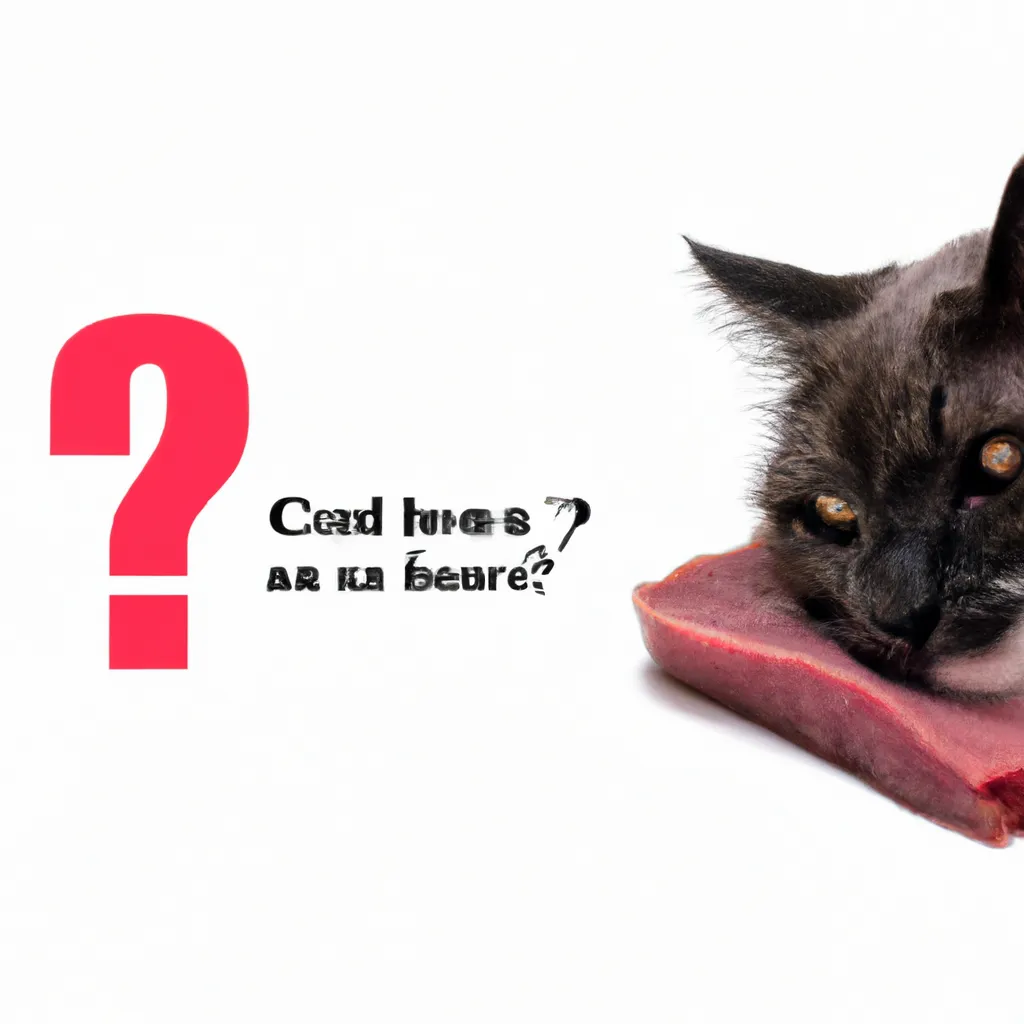
What is the best food for cats?
The best food for cats is a well-balanced diet that includes a variety of proteins, carbohydrates, and fats. This means a mix of high-quality commercial cat food, which is specifically formulated to meet their nutritional needs, and some safe human foods. It’s a feline feast that should be rich in animal proteins, contain moderate fats, and have a minimal amount of carbohydrates. Cats, being obligate carnivores, thrive on meat-based diets, and it’s crucial to ensure they get enough taurine, an essential amino acid found predominantly in meat.
Beef, in particular, can be a nutritious addition to a cat’s diet. It’s packed with essential nutrients like protein, B vitamins, iron, and taurine. However, it should be cooked properly to kill any harmful bacteria and should be served in moderation to prevent obesity. Also, it’s important to note that while beef can be beneficial, it should not be the sole component of their diet. A variety of proteins provides a more balanced nutritional profile. So, while your kitty might purr at the sight of a juicy beef steak, remember to mix it up with other meats and commercial cat food to ensure they’re getting all the nutrients they need.
Subscribe to our email newsletter to get the latest posts delivered right to your email.
